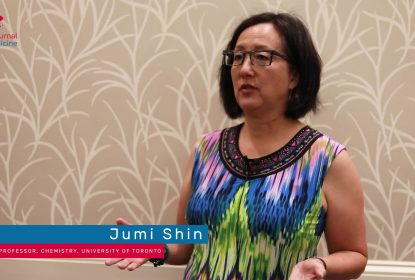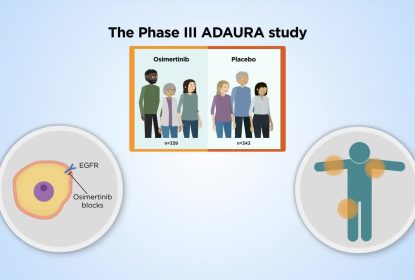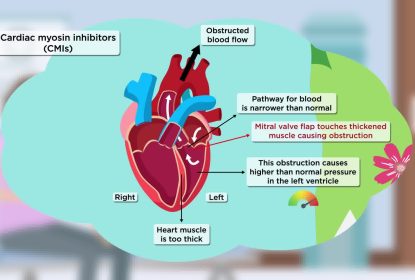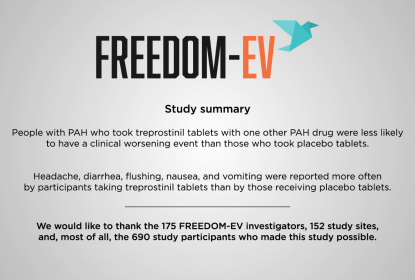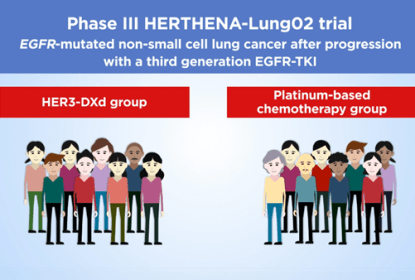
Xevinapant + chemoradiotherapy in LA SCCHN: extended follow-up of a phase II clinical trial
Head and neck cancer is one of the most common types of cancer worldwide. Over 90% of all head and neck cancers are squamous cell carcinoma of the head and neck (SCCHN) and most patients (around 60%) are diagnosed with the locally advanced (LA) form of the disease.
The current standard of care (SoC) for these patients is either surgery followed by chemoradiotherapy (CRT) or definitive CRT (focused on cure or long-term control) for the 50% of patients that do not undergo surgery (unresected). However, within two years post-treatment, nearly half of LA SCCHN patients experience disease recurrence or the disease becomes metastatic – the prognosis of these patients is poor, with a median overall survival of approximately 12 months. Novel treatment options are urgently needed to improve the outcomes for patients with unresected LA SCCHN.
Resistance to anticancer treatments is a significant contributing factor in treatment failures. Cancer cells can begin to overproduce proteins, known as inhibitors of apoptosis proteins (IAPs) that block the treatment’s action and prevent the cells from being killed. Xevinapant blocks the activity of IAPs, counteracts this resistance and therefore enhances the effectiveness of CRT.
In the phase II segment of a phase I/II clinical trial (NCT02022098), xevinapant combined with CRT showed a well-tolerated safety profile and significantly improved the ability of CRT preventing recurrence of cancer in patients with unresected LA SCCHN.
In this video, Prof. Jean Bourhis presents the results of an evaluation of the effectiveness of xevinapant + CRT after 3 years of treatment and survival after 5 years of treatment.
 Meet the speaker:
Meet the speaker:
Prof. Jean Bourhis graduated in Paris as a Medical Doctor (MD) and is board certified in Radiation Oncology.
From 2002 to 2012 he was chairman of the Radiation Oncology Department at the Institute Gustave Roussy (Villejuif, France), one of the most prominent Cancer Centers in Europe.
His clinical activity has been focused on Head and Neck Oncology and he has been principal investigator of more than 15 clinical trials in this field, mainly multicentric randomized trials. He coordinated several large-scale international collaborative meta-analyses in head and neck oncology, the contributions of which have been recognized worldwide. He is also co-founder and current chairman of the GORTEC, one of the most active cooperative groups in head and neck oncology.
Prof. Bourhis also has a major interest in Laboratory and Translational Research. He obtained a PhD in Molecular Oncology at the University of Paris. For 25 years, in parallel with his clinical activities, he has been Director of a laboratory dedicated to Experimental and Translational Research in Radiation Oncology. He is now involved in clinical translation of FLASH therapy, a new and promising form of radiation therapy.
He has authored more than 400 peer-reviewed scientific papers, with a H. factor > 60.
In 2012, Prof. Bourhis moved to the CHUV as Chair of Radiation Oncology.
Prof. Bourhis is also the past President of the European Society for Radiotherapy and Oncology (ESTRO) and past President of the Swiss Radiation Oncology Society (SASRO).
Original article:
Extended follow-up of a randomized phase 2 trial of xevinapant plus chemoradiotherapy in high-risk locally advanced squamous cell carcinoma of the head and neck: a randomised clinical trial
Tao Y, Sun XS, Pointreau Y et al
European Journal of Cancer (2023) doi.org/10.1016/j.ejca.2022.12.015
